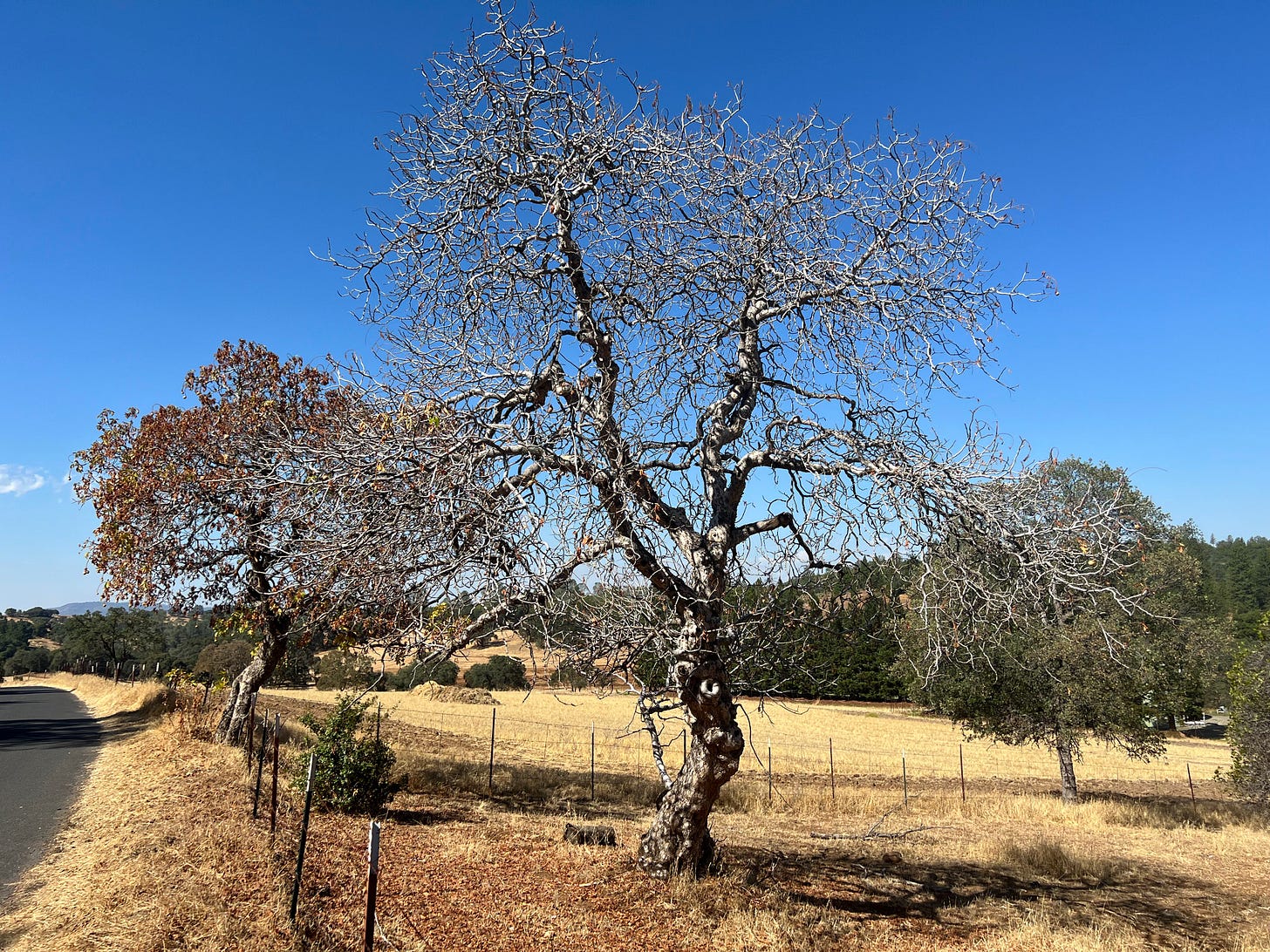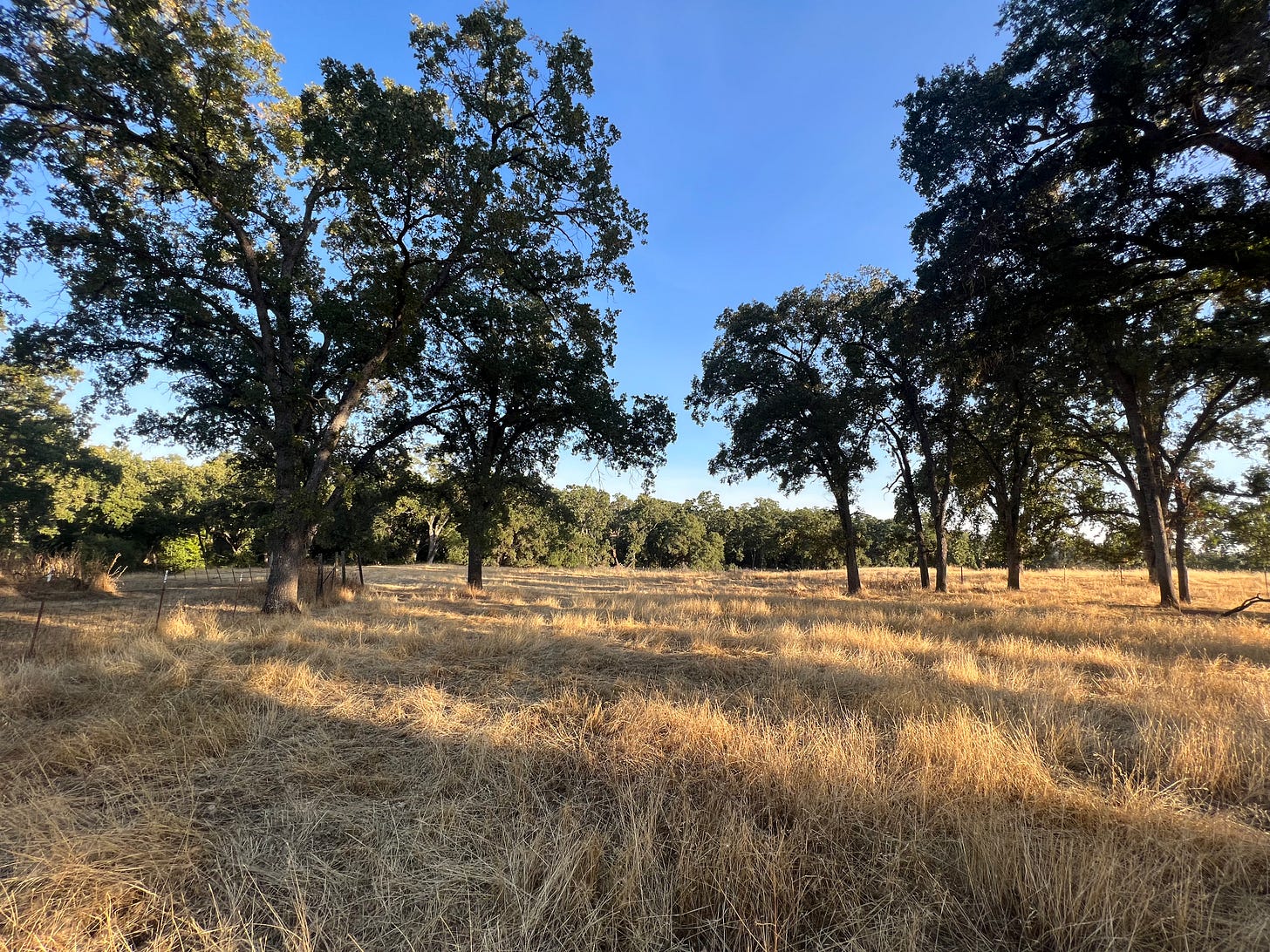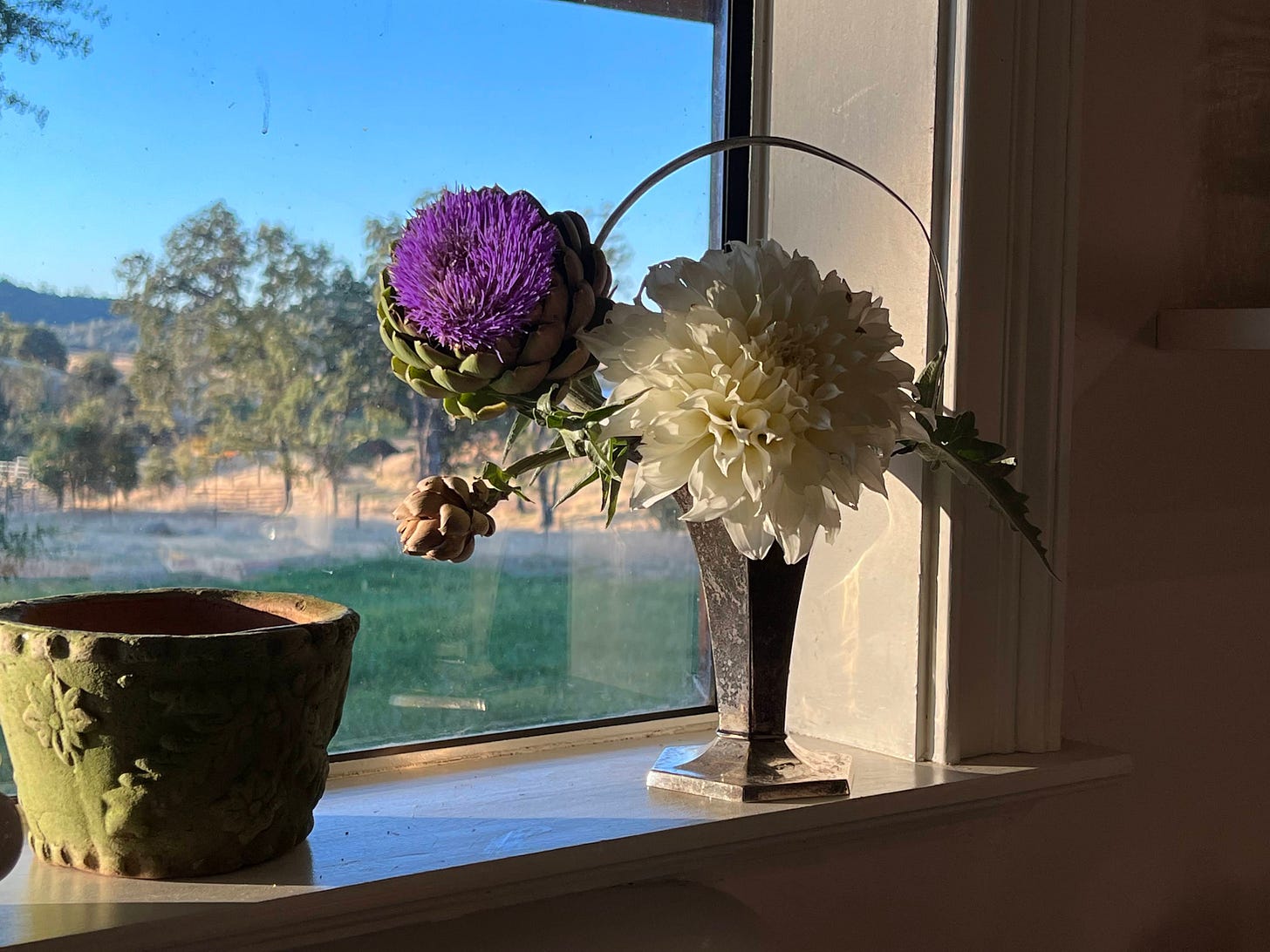(Ode to August Part One, Here)
Why do we homeschool? My husband does not struggle with this question. Part of it is that he has me to coordinate all of the logistics. Ha! But—he also sees very clearly what I often fail to remember.
My husband and I homeschool because we do not need daycare. We homeschool because the current school system is fashioned to serve parents who must work eight hours a day. School hours line up with office work hours, and everyone is happy to pretend that the hours needed to make a living just happen to magically equal the hours needed to educate a child. In reality, only a tiny fraction of the day is needed for core academic instruction. We have inflated 2-3 hours into 8, and in so doing we have stolen a huge portion of childhood.
When my mom attended Berkeley High School in the 1960s, public school offerings reflected reality: only a few hours a day were reserved for reading, writing, and arithmetic. The rest was devoted to extra curricular pursuits, physical education, recesses, snacks and lunch. In the 1960s my mom had band and choir and private music lesson instruction all folded into her school day. There was shop class and home economics, drama and student leadership. Of course modern public schools offer some shadow of this now, but the quality is abysmal. Each year, things that are not reading or math get squeezed out and somehow more and more hours are devoted to core academics, with increasingly pathetic results.
Not too long ago, the meaning and goals of education still existed independent of the social goal of needing somewhere to put all these kids while parents worked. The purpose of the public school system was human flourishing and happiness. It was supposed to make kids into good citizens who could be happy whatever career they set out to do. It gave them the basics, but also a firm and confident culture and enough music and arts to fortify them through the hard years of their coming adulthood. Education used to be about developing people into happy adults—shepherding them into healthy psychological and physical development such that when they reached 18 years old, they were capable of doing things like defeating Hitler and saving the free world.
I’m not sure anyone looks at public education that way anymore.
Covid revealed what education is now: somewhere to put the kids. Test scores and student achievement have plummeted since 2019, and nobody cares. It’s not about that. It’s about having someone who will take the kids all day. We’d all prefer that they’d actually educate them, too, but we no longer have the cultural will to demand it. We closed the schools and did zoom school for a couple of years. Nobody learned anything. And we’ve all accepted it.
When covid ended and they finally opened all of our schools again, most of us sent the kids straight back—relieved—and fully aware of what the public school system had become. So many kids fell behind during the pandemic. Thousands of kids simply stopped attending school altogether during the pandemic, and nobody even knows where they are now. But no matter—the system just adjusts its testing and benchmarks to hide the losses, much as they’ve done the past thirty or forty years to hide the perpetual decreases in student academic achievement before the pandemic.
Private schools are less adept at hiding loss in quality, but they suffer in other ways from the default culture of American education. My husband and I homeschool because life has so much more to offer children than eight hours a day in a desk. Even the best school, with the best curriculum, and the safest environment, requires a substantial amount of just sitting still, captive. It’s a cattle holding pen from 8:00 to 3:00, then hours of homework after school, not because 9-10 hours of school total is necessary for education but again, because enough working parents prefer that their kids remain busy. Occupied.
Before covid, my kids were in a private Christian school. That’s supposed to be better than public school! Some of them didn’t learn much math at all. They sat in class all day and had hours of homework, but none of that turned into actually learning math. The same is true of grammar and writing. My experience is that schools—public and private—will do culture, parties, holidays, some history, lots of games and socialization, and some career prep for you. But they will not teach your kids math and upper level science unless you demand it. You cannot necessarily assume they will teach your kids English composition and grammar, either. Of course the schools will say they are doing these subjects…they even have tests to prove it! But standards have slipped so far since I was in high school that you really need to be watchful. You have to do the homework with your kids, and you have to demand that educators expect excellence. Because the system isn’t set up for achievement. It is set up to keep the kids while the parents work.
The awful reality of America’s dominant schooling culture is that most of the parents want it this way. They would prefer the kids got more out of it, of course. But there is a substantial percentage of parents who seem content with really mediocre academics, so long as schools continue to tell them that all the kids are merit scholars.
We homeschool because it is not worth it to send the kids to school and also educate our kids ourselves, after hours, to make up for what the school doesn’t do. It’s just not worth it. If you have ideals or standards outside of the education goals currently defined for parents by the school system itself, it’s just too demoralizing. Either you opt in and take the free childcare and decide “achievement” and “education” are whatever the schools say they are, or you opt in and fight the system and advocate for objective, real standards…or you opt out.
We’ve opted out. But every August, I think about opting back in—letting the system do a big portion of my childrearing for me. Because the decision to homeschool isn’t simply a realization that schools are not educating kids like they used to. That’s not enough. The decision to go it alone—to take the responsibility for every aspect of my kids’ education onto myself and my family—is not based on doctrine or theory. It isn’t a one-time decision that I can rest in. Instead, every August, I have to assemble in my mind all of the resources currently available to me, all of the objectives that my husband and I have for our children’s education, and compare them to my knowledge of each particular child’s progress and aptitude for home education. Is it a fit? Are all of the kids learning and thriving?
Most importantly, every August, I have to look at our family culture, and the strength of our local community, to determine whether or not we have created enough alternative culture—positive culture and traditions—to sustain us should we decide, once again, to opt out. The responsibility is huge and it never abates, which is one of the reasons I despise August.
However—once I wrestle with this and decide where prudence leads, then I can begin the school year in earnest. Tackling why we must homeschool always precedes the fun and creativity of figuring out how we will homeschool.








I love how balanced but also compelling this is. I feel like this is a piece I can share with anyone on any side of the political fence and they will be able to understand it. That is a lot more than I can say for almost anyone writing about anything cultural nowadays. Also, your photos/landscape look very familiar. We’re not far from gold country—a little closer to the coast :)
I'm writing on this and came here looking for a different post of yours, then found these two.
"I have to look at our family culture, and the strength of our local community, to determine whether or not we have created enough alternative culture—positive culture and traditions—to sustain us should we decide, once again, to opt out. The responsibility is huge and it never abates, which is one of the reasons I despise August."
I am so relieved to read this from you, because I'm feeling it, with children ages baby - 9 years, and you're the first person I've heard say it out loud.